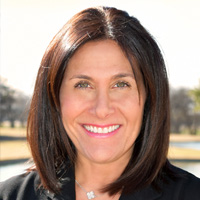As part of our “Love Essentially” series, Jackie Pilossoph helps us navigate the complex world of relationships. Have a question that you would like her to answer? Contact her here, and it may be featured in an upcoming article!
When I think about victims of domestic violence, I think about the physical and emotional abuse they experience, and their immense trauma, heartbreak and fear.
But there’s another kind of cruelty that domestic violence victims can endure: financial abuse, which is when a spouse controls their ability to earn money, spend money, save money, and or have access to financial resources. It’s a tactic by the abuser to gain power and control in the relationship, and sadly, it’s very common.
According to an article published by the Center for Financial Security at the University of Wisconsin, financial abuse occurs in 99% of domestic violence cases, leading to survivors not knowing how to provide financially for themselves or their children.
That statistic is the driving force behind Tammy Wener’s volunteer work. The Lincolnshire based Certified Financial Planner and Director of Public Awareness for the Financial Planning Association of Illinois got involved last year, when her organization received a call from W!se, (Working in Support of Education), a New York based educational nonprofit group aiming to bring financial education classes to domestic violence survivors in Chicago.
Wener, who has worked in the financial industry for 17 years, volunteers to teach W!se’s 12-week course “MoneyW!se” at one of two participating Chicago domestic violence shelters.
“If you’re not financially knowledgeable and aware, it’s very difficult to be independent,” said Wener, who holds an MBA from DePaul University. “So much of our lives are tied to finances—buying a car, getting a credit card, cashing a paycheck, and you risk depending on someone and getting taken advantage of if you’re uneducated in this arena.”
David J. Anderson is the Executive Vice President of W!se. Anderson said the 22 year-old organization started the program as a “toolkit” of skills for survivors to become financially independent people as they begin a new phase of their lives.
“When someone leaves an abusive relationship, they might not know how to manage money and they don’t have the confidence or the knowledge in an independent living situation,” said Anderson, who has worked in his position for 13 years. “So, this can be an impediment in someone leaving an abusive relationship. The financial abuse can be a shackle.”
MoneyW!se students include women both currently living in the shelters and those from the community. All participants are provided with transportation, child care and dinner at each class.
The 12-week course, taught by Wener and two other volunteers in Chicago includes these topics: budgeting, cash flow, ways to save money, banking, credit, paychecks, employee benefits, buying and renting a home, and investing.
“We teach topics that are relevant for their lives now and topics we hope will be relevant as they get back on their feet,” Wener said. “It’s eye-opening how many of these women have bad credit because of the financial abuse that they’ve been through. Their spouse or family member might have opened accounts using the victim’s financial information and they never paid the bills. It’s not uncommon.”
Wener described her volunteer teaching position as “by far the most rewarding and challenging work I’ve ever done.”
“The women are honest and raw in describing their experiences,” she said. “Sometimes they cry but sometimes they are funny and they talk about what happened to them without fear. They encourage and support each other, and mostly they are hungry to learn.”
Success stories include a woman who ended up making an offer on a home, and someone who committed to saving $5-10 per week for 12 weeks, and found herself with $100 at the end of the course.
“The woman who saved $100 was in tears,” Wener said. “The course is designed to give these women financial independence, confidence, empowerment and resources. Many of them want to teach their kids about finances so they won’t find themselves in this situation later in life.”
“I’ve watched these course participants,” said Anderson. “The light goes on. Over the 10 to 12 weeks it’s like, ‘Aha, it’s not so complicated. I can budget, I can save, I know about insurance, I can do this.’ The toolkit we’re providing to them, it’s truly transformative.”
At the end of the 12 weeks, students are required to take a test. If they pass, they receive a Financial Literacy Certificate, presented to them during a completion ceremony.
“Some of the students cried and were saying they never got a certificate for anything,” Wener said. “To see their hope and desire to learn and improve their situation is amazing. Their humor and their willingness to open up is really rewarding.”
“They get to the end of the course feeling empowered to move forward in their lives as wonderful, independent human beings,” Anderson said. “It’s beautiful to see.”
If you are a victim of domestic abuse or you know someone who you think might need help, call the Illinois Domestic Violence Hotline. To find out more about financial literacy classes for domestic abuse survivors, visit W!se.
More from Better:
- Not Your Basic Guide to All Things Pumpkin
- New National Geographic Show Narrated by Josh Gad Goes Behind the Scenes at Disney’s Animal Kingdom and EPCOT
- Monet & Chicago: A New Exhibition Arrives at The Art Institute of Chicago

Jackie Pilossoph is a former television journalist and newspaper features reporter. The author of four novels and the writer of her weekly relationship column, Love Essentially, Pilossoph is also the creator of the divorce support website, Divorced Girl Smiling. Pilossoph holds a Masters degree in journalism and lives in Chicago with her two teenagers.

